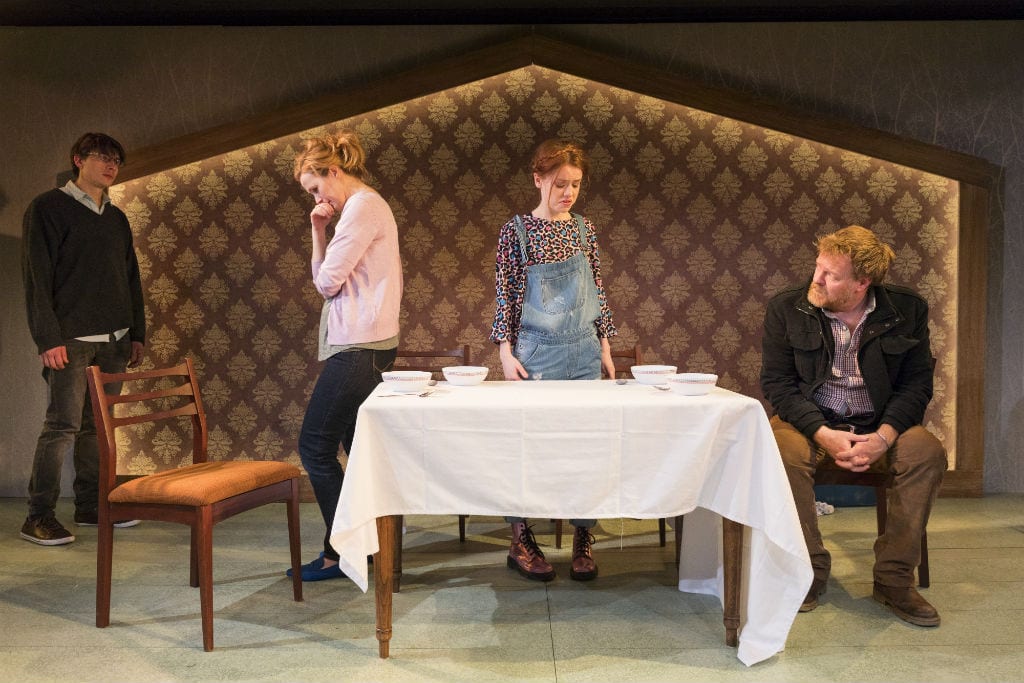The smaller of the two stages at Trafalgar Studios provides a comfortable, intimate setting, ideal for the meaningful exploration of domestic family life promised by playwright Stephanie Jacobs in her programme notes. Unfortunately, this production trips and stutters through the overcomplications of its script, despite some strong acting performances.
The play features a divorced husband (Chris Larkin) and wife (Natasha Little) and their attempts to maintain a functional family environment for their two adolescent children, played by Rosie Day and Charles Reston. As an audience, we are thrust into the sacred recesses of the family home. The conversations and interactions we observe are intensely private, filled with the horde of family secrets.
Such a complex environment must be treated with great delicacy, but Jacob’s confusing narrative structure stops us from fully engaging with the characters. Different versions of the same scene play out one after the other, with the action starting from the same point but progressing in a different direction each time. It is a creative way of exploring the magnitude of seemingly trivial words and actions within the family home, but the sudden jumps tend to puncture the atmosphere and make things a bit dull – especially when you hear the same joke for a third time.
Towards the end of the play the actors experiment more with the cuts and jumps, adding a bit more zip to the action. At one point, having stormed off stage in fury, Charles Reston as the young Adam must go back to his original position to start the scene again. He crosses back over and shoots another glare towards his mother with whom he had been arguing, exaggerating the emotional tension of the previous scene to comic effect. This subtle nod to the audience, making more creative use of the script, produces a much less disruptive effect on the theatrical atmosphere and should have been used more.
The simpler moments prove most successful throughout the play. After a series of bitter arguments during which both children threaten to leave, the family of four sit together around the kitchen table and share a pot of soup. After a moment’s silence, the father cracks a groan-inducing joke that breaks the tension brilliantly. There is an eruption of laughter and a couple of playful comments before silence falls again, but this time with a happy and contented feel. It skilfully captures the contradictory experiences of the family home; the unique anger and the unique satisfaction. Again is crying out for more of these moments and fewer awkward theatrical tricks.
One major redeeming feature is the exceptional performance of Rosie Day as the young Izzy, who is the last to arrive on stage but brings a palpable elevation to the action. She uses the space with a creativity and purpose that makes here supremely watchable and is somewhat lacking in the wider cast.
Perhaps damning with faint praise, but one of the more positive features of this production is the short runtime of 1 hour 15 minutes, with no intermission. The play is snappy and concise and doesn’t dwell too long on one particular idea but flashes through the episodes to give a dynamic, complete portrait of the domestic space. Without the heavy-handed call-backs, and with some less cliched dialogue, Again would be much more successful.

